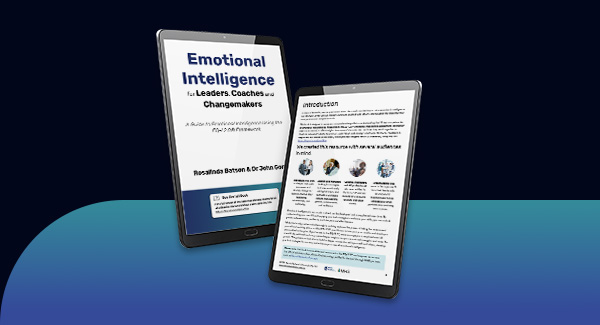How Does Coaching Build a High-Performance Sales Culture?
Coaching is a key driver in building a high-performing sales culture by fostering continuous improvement, accountability, resilience, and empowerment. It aligns individual performance with organisational goals, ensures consistent execution, and creates a pipeline of future leaders. By embedding coaching into the culture, sales leaders can build a team that thrives on growth, innovation, and sustained success.
Here’s how coaching helps build that culture:
1. Instils Continuous Improvement
- Focus on Development: Coaching drives a mindset of continuous learning and skill enhancement. By regularly working with salespeople on areas of improvement, coaching ensures that the entire team is always growing and evolving. This commitment to development becomes a cornerstone of the culture, where improvement is the norm, not the exception.
- Fosters Innovation: In a high-performing culture, sales teams must adapt to changing markets and customer needs. Coaching encourages experimentation with new techniques, strategies, and tools, making innovation a key part of everyday operations. This keeps the team ahead of the curve and creates an environment where improvement is actively pursued.
2. Builds Accountability
- Personal Responsibility for Success: Coaching empowers salespeople to take ownership of their goals and performance. By setting clear expectations and following up on progress, coaching ensures that each team member is accountable for their results. This accountability helps build a culture where success is driven by individual ownership and collective responsibility.
- Clear Metrics and Progress Tracking: Regular coaching sessions provide sales leaders the opportunity to set measurable goals and track performance over time. As team members are held accountable for reaching these benchmarks, it establishes a high-performance culture focused on results and accountability.
3. Enhances Team Resilience
- Support Through Challenges: Sales teams face constant setbacks, from difficult market conditions to missed targets. Coaching equips salespeople with the resilience to bounce back from these challenges. By regularly working with individuals to reflect on their experiences, manage rejection, and develop strategies for overcoming obstacles, coaching helps build a team that can thrive under pressure.
- Positive Mindset and Emotional Intelligence: Resilience is also about mindset. Coaching fosters emotional intelligence, teaching salespeople how to manage their emotions and remain focused and motivated in the face of difficulties. This emotional resilience becomes part of the team’s DNA, driving sustained high performance.
4. Creates a Collaborative and Empowering Environment
- Empowers Salespeople to Problem-Solve: Coaching promotes critical thinking and self-reliance. Rather than relying on top-down instructions, salespeople learn to take initiative, solve problems, and make decisions autonomously. This creates a culture of empowerment, where team members feel trusted to take ownership of their performance.
- Encourages Collaboration: Coaching can also promote collaboration within the sales team. By fostering a supportive environment where feedback and shared learning are part of the culture, coaching encourages team members to help each other improve. This shared commitment to excellence strengthens the team and drives overall performance.
5. Aligns Individual Performance with Company Goals
- Strategic Alignment: Through coaching, sales leaders can ensure that each team member’s goals and activities are aligned with the broader organisational strategy. This alignment helps salespeople see how their individual performance contributes to the company’s overall success, creating a sense of purpose and shared vision.
- Drives Consistency in Execution: High-performing sales cultures rely on consistent execution of the sales strategy. Coaching helps standardise best practices, ensuring that each team member is following proven methods and continuously refining their approach. This consistency across the team leads to more predictable, scalable results.
6. Develops Leadership and Future Sales Leaders
- Leadership Pipeline: Coaching helps identify and develop future leaders within the sales team. By providing continuous development and nurturing leadership qualities in high-potential team members, sales leaders can create a pipeline of future sales managers and leaders. This focus on leadership development is a hallmark of high-performing sales cultures.
- Leadership by Example: Sales leaders who coach consistently set a strong example for the team. When coaching is a priority at the leadership level, it reinforces the value of growth and performance improvement throughout the organisation, inspiring others to adopt the same mindset.
7. Drives Sustainable, Long-Term Success
- Behavioural Change and Habit Formation: Coaching is not just about short-term wins; it’s about fostering long-lasting behavioural change. By focusing on building positive habits over time, coaching leads to sustained improvements in sales performance. These behavioural changes ripple across the team, creating a long-term culture of high performance.
- Consistent Results: A high-performing sales culture is built on the foundation of consistency. Coaching helps salespeople develop the skills, habits, and mindset to achieve consistent results, rather than relying on occasional bursts of performance. Over time, this consistency translates into long-term success and predictable outcomes.
Sign up for the Neural Networks Newsletter
Join our mailing list to receive information on leadership, sales, and emotional intelligence.

 +61 9555 7955
+61 9555 7955